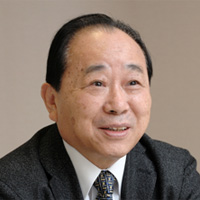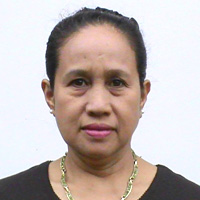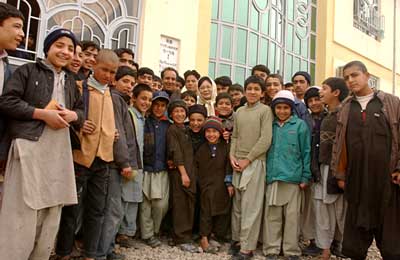Selection Process
The Sakai Peace Contribution Award screening committee met on 23rd March and 25th June, 2010 to discuss the nominations and select the winners. On 30th July, Mr. Masaaki Ueda, the committee chairperson, released a report and the award recipients were selected as listed below.
Judging System
The committee sent out a request for nominations from both domestic and overseas intellectuals, and academic institutions (350 within Japan and 150 from overseas) and the committee members.
The award recipients were selected from the list of nominees proposed by the screening committee, and the final judge was made by the city.
Process
| 2009 | June. | Nomination request forms distributed to the referees (500 send-outs/Japan and overseas) |
|---|---|---|
| 30 September. | Deadline for nominations (21 nominations received) Detailed report on the nominees prepared |
|
| 2010 | February. | Selection materials presented to the screening committee |
| 23 March. | First screening committee meeting held |
|
| 25 June. | Second screening committee meeting held |
|
| 30 July. | Award recipients selected (1 Grand Prize, 2 Encouragement Prizes/1 Individual, 1 Group) |
| Category | Number of Nominations Requested | Number of Nominations Collected | ||
|---|---|---|---|---|
| Japan | Individuals | 200 | 350 | 13 |
| Research Institutions | 60 | 0 | ||
| Universities | 60 | 0 | ||
| Intermediate NGOs | 30 | 2 | ||
| Overseas | Research Institutions | 50 | 150 | 2 |
| Miscellaneous Organisations | 50 | 2 | ||
| Universities | 30 | 1 | ||
| Embassies in Japan | 20 | 1 | ||
| Total | 500 | 21 | ||
| Individuals | Groups | Total | |
|---|---|---|---|
| Japan | 6 | 7 | 13 |
| Overseas | 8 | 0 | 8 |
| Total | 14 | 7 | 21 |
Introduction of the Award Recipients
Grand Prize
MR. MOTOI TAUCHI

Profile
Mr. Motoi Tauchi was born in Mokpo, Republic of Korea and currently resides in Izumi City, Osaka Prefecture, Japan.
Today, he serves as a social worker and also the Head Director of ‘Kokoro-no Kazoku’(Family of Hearts), a social welfare corporation.
In Japan, there are a large number of Korean nationals; not only those who came to Japan during the colonial period and remained after the war for various reasons, but also their descendants who have lived in Japan since birth.
He was the first born son to Mr. Yun Chi Ho and a Japanese mother, Ms. Chizuko Tauchi, who raised 3,000 orphans over 30 years at the Mokpo Kyoseien foster home in Korea and was known as “The Mother of Korean Orphans”. His father disappeared one day in 1951 amongst the chaos of the Korean War, so after his mother passed away in 1968, Mr. Tauchi took on the position as the Head Director of the foster home.
He moved to Japan in 1982 and he understood the sadness of Korean residents in Japan dying without friends and family around. He wanted to create a place where elderly Korean people could relax in a homely environment, so Mr. Tauchi became the Head Director of ‘Kokoro-no Kazoku’ in 1988. He subsequently established ‘Kokyo-no Ie’ (House of the Old Home), a senior citizens’ home in Sakai in 1989.
Later, he established a day care center for the elderly in Ikuno-ward, Osaka City and ‘Kokyo-no Ie’ facilities in Kobe in 2001 and Kyoto in 2009. Moreover, he launched additional foster homes, vocational aid centers for the disabled and other work training centers in South Korea. Today, he manages a total of 15 facilities in Japan and South Korea.
Besides the examples listed above, he has continued to contribute to cultural exchange between the two countries in various ways. He assisted in the co-production of a film by Japan and South Korea called ‘Ai no Mokushiroku’ (The Apocalypse of Love) about his mother’s life. Furthermore he held international communication symposiums between the two nations and conducted trainings in welfare activities for Korean students who study in Japan.
Motivating factors of the selection
With the rising number of foreign residents in Japan and the development of globalization within society, it is an important challenge for those engaged in the multicultural communities to consider how each elderly foreign individual can actively live out one’s life.
Facing this challenge, Mr. Tauchi’s personal viewpoint as a civilian gained support and sympathies from society who in turn contributed to his efforts. His work has been significantly recognized not only as a pioneer in breaking through challenges but also as forming a successful model for the universal community that ensures the pursuit of dignity for these individuals.
This glorious achievement is to be highly valued because the outstanding exchange activities promoted through his institutions, certainly encourage all of us to appreciate generosity, cultural diversity and true freedom.
Encouragement Prize
MS. AGALYN NAGASE

Profile
Ms. Agalyn Nagase was born in Mindanao, Republic of the Philippines, in March 1963 and she now lives in Hanno City,Saitama Prefecture, Japan and manages KAFIN (Kalipunan ng mga Filipino na Nagkakaisa, in Tagalog meaning The Filipino Mutual Aid Organization).
In Mindanao, the southern island of the Philippines, there has been a confrontation between the native Islamic tribes, known as Moro, and the government since the post-war period.
In 1970, a battle between government forces and the indigenous guerillas for self-determination erupted and this event resulted in a large number of victims and refugees to rove about in the region. They mutually implemented a ceasefire in 2003 and entered into peace talks that have intermittently continued, however the area still remains in an unstable condition.
In addition to this delicate situation, there are currently approximately 200,000 Filipino nationals living in Japan and many of them are experiencing social and cultural difficulties.
Ms. Nagase was one of the victims in the Mindanao crisis, but since she established the Islamic youth organization in 1984, she has been working to support victims (women and children) to provide them life securities and self-reliance assistance. To this effect, she launched the Moro Women’s Center in 1990 and the Pasasambao Integrated Health Service in 2000. Furthermore, she has also made remarks through a number of public speeches in Japan addressing Mindanao’s peace.
After her marriage with a Japanese national in 1995, she moved to Japan in the following year and in 1998 established KAFIN in Warabi City, Saitama Prefecture. This center provides the local Filipino nationals with a wide range of assistance from consultancy on single-motherhood and support of domestic violence victims to Japanese language classes for Filipino mothers and introducing of Filipino culture to the local schools and communities. Today, the organization has six branches in Tokyo, Yokohama, Nagoya, Osaka, Gunma and Nagano.
Motivation factors of the selection
Despite the fact that Ms. Nagase was a victim of Mindanao war herself, she has not only provided self-reliance support to a large number of victims in her home land, but also seized every opportunity for local peace building by promoting mutual understanding.
Her work has received a high evaluation from the screening committee because its core values focus on the security and enhancement of freedom, autonomy, and independence of people and their communities.
Moreover, Ms. Nagase has been supporting Filipino nationals living in Japan with the many problems they face. By reinforcing local communication activities and the understanding of cultural diversity, she has contributed to the creation of a universal community that values and preserves the rights and dignity of individuals, and the opportunity for everyone to follow their dream.
NGO LALA ASSOCIATION of Afghan Orphan Support

Profile
The Lala Association directed by Ms. Mayumi Karako, was established in Ikoma City, Nara Prefecture, Japan in 2003.
After 20 years of civil war, Islamic Republic of Afghanistan is currently making an attempt to reform the nation however there is still political unrest and its people continue to lead unstable lives.
Afghan women do not have enough social or economic freedom, so children who lose their fathers to disease or war are often considered orphans.
Many of them are trapped in poverty and therefore, forced to live life apart from their families, for example in a foster home, or to work in order to support their families.
The Lala Association was established in 2003 to support minors suffering from these tragic conditions and in 2005 a new orphanage was built in Herat (in Western Afghanistan) and later donated to the state government.
These days, the association is working to improve the living condition of the foster home in Heart, supplying household goods and also hiring local teachers to provide the children education in English language and PC skills.
In 2007, it set up a handcraft-workshop providing employment to local women and a place where they can produce traditional Kilim rugs and embroideries to help them obtain financial independence and ultimately to lead stable lives.
Motivation factors of the selection
Building on the empathy and support of locals and working reactively to the local conditions, the Lala Association has achieved a great deal. Its work to improve the living conditions of Afghan orphans, to provide children educational opportunities and to support women to become self-sustainable have been a great leap-forward for the entire society of Afghanistan towards a more stable life in the future.
The association is highly valued for its in-depth activities, by promoting an understanding of cultural diversity, they have contributed to the creation of a universal community that values and preserves the rights and dignity of individuals, and the opportunity for everyone to follow their dream.
